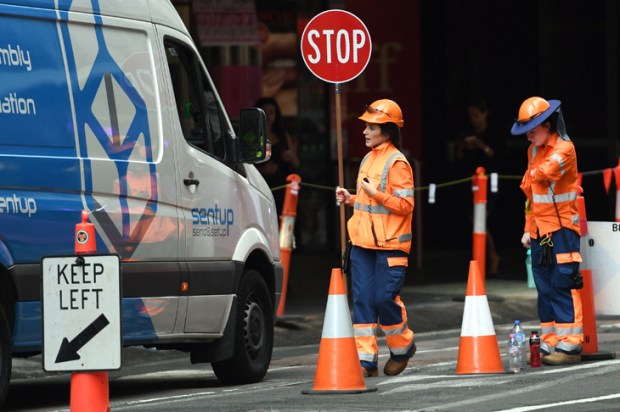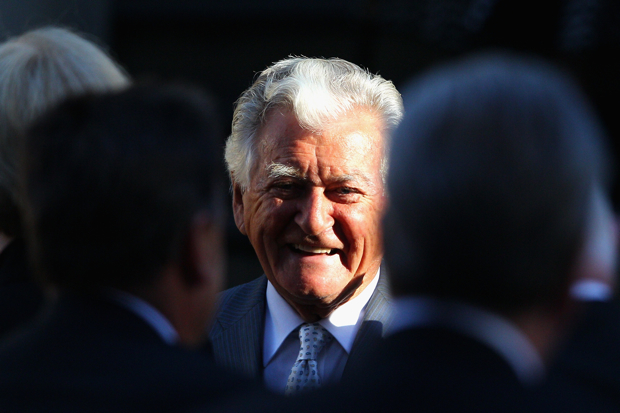In the wake of Labor’s 2013 defeat, where its primary vote sank to its lowest level since 1931, we’ve been told ad nauseam by national party leaders and the commentariat that the way forward for the party is to undergo radical corrective surgery — otherwise known as structural reform.
Opposition leader Bill Shorten, in his much anticipated speech to the Per Capita forum, joined in the chorus for structural reform — he spoke of a ‘widespread, genuine passion for rebuilding the Labor party’ — but not at the expense of unions. The opposition leader did not speak to this issue when addressing the NSW State ALP Conference the weekend before last.
At that conference, the motion to have the NSW state parliamentary leader elected by the membership was passed, with the strong support of the current leader, John Robertson (he quietly advocated the idea a couple of years before Kevin Rudd put it forward nationally).
However, Senator John Faulkner’s amendment to have state upper house parliamentarians and senators from NSW pre-selected by a ballot of members — rather than as currently by state conference with its 50 per cent union and 50 per cent member representatives — was defeated by a coming together of almost all Right delegates, all Right unions and almost all Left unions.
Returning to the federal level, Labor lost office due to the unending warfare following the deposing of Kevin Rudd as Prime Minister and the installing of Julia Gillard, economic mismanagement, other failed policies and a broken promise — not issues of party structure.
Anyway, when considering such reform surely the crucial question for any political party given its history, traditions and values is who it represents: from which group(s) does it draw its membership and support?
Party leaders — particularly many on the Left, such as Senator Faulkner — when discussing the parlous state of party membership speak of ‘progressive, socially minded activists’, ‘activists’, ‘progressive voters’, ‘progressive Australians’ and the like. They hardly ever mention Labor’s traditional working class supporters.
This may come as a surprise, for since Gough Whitlam’s time onwards the party has known that working class attendance at branch meetings has fallen away. Party members are now largely progressives, with some of the biggest and most active branches in the inner cities.
No matter, apparently for these leaders the threat to Labor’s membership base and electoral support comes from the Left, not the Right!
However, a moment’s reflection should be enough to dispel this notion.
Or have they forgotten that the policies introduced by the first Rudd government on boat people and climate change that repudiated — to the raucous applause of inner-city self-styled progressives and activists — the Howard government’s policies on these issues were later unceremoniously dumped by the returning Prime Minister Kevin Rudd for fear of losing a swag of working class seats in Sydney’s outer-western suburbs?
Moreover, threats by progressives and activists to vote for the Greens are empty as most of their preferences flow to Labor.
Labor would do well to take a good, long hard look at who it represents.
So what of Labor’s traditional working class supporters?
Dr Nick Dyrenfurth, author or editor of several books on Australian labour and political history, raised gender affirmative action policy for parliamentarians in the context of declaring the need for Labor to get back to its working class roots. However, views expressed by senior party officials and parliamentarians that if Ben Chifley were alive today, he would have attended university, implies that the dearth of men and women in blue collar and routine white collar jobs contesting Labor pre-selections is a non-issue for the party.
The major reforms proposed federally include changes to the rules for electing the party president and parliamentary leader, pre-selection of candidates for Senate and House of Representative seats and reducing union representation at National Conference.
The members’ election of the president and partial election of the parliamentary leader have already been introduced, with the results providing a good indication of where they are likely to take Labor.
The president is the hard Left’s Jenny McAllister, a former government adviser who developed climate change and environmental policy, has an arts degree and lives in inner-city Sydney, while the unsuccessful candidate for the parliamentary leadership, the hard Left power broker Anthony Albanese, won approximately 60 per cent of the members’ vote.
It will be no surprise, then, if the state branches adopt a members’ ballot for the Senate and lo and behold it is progressives and activists who are the most successful candidates. Similarly, calls for a reduction in union representation at National Conference raise the question: who will fill the vacuum?
The Right’s national secretary of the Shop, Distributive and Allied Employees Associations, Joe de Bruyn, claims that the calls for reform are nothing more than the Left talking up its book.
The most far reaching reform, though, is primary voting for the House of Representatives. If the party is serious about attracting the working class back to Labor, it should consider a model of primary voting that involves branch members in each electoral division inviting the local population to an open forum where candidates for pre-selection would speak — only ALP members would be entitled to nominate — after which all present who were on the electoral roll and not members of another political party would be eligible to vote (union members could be given a more heavily weighted vote). At least this model would deliver candidates who better represent the interests of local people.
There is, however, a real concern thatprimary voting in particular is open to manipulation by local warlords, so that careful thought would have to be given to introducing rules capable of thwarting their activities.
Got something to add? Join the discussion and comment below.
Get 10 issues for just $10
Subscribe to The Spectator Australia today for the next 10 magazine issues, plus full online access, for just $10.
Michael Thompson is the author of Labor Without Class: The Gentrification of the ALP (1999)
You might disagree with half of it, but you’ll enjoy reading all of it. Try your first month for free, then just $2 a week for the remainder of your first year.













Comments
Don't miss out
Join the conversation with other Spectator Australia readers. Subscribe to leave a comment.
SUBSCRIBEAlready a subscriber? Log in